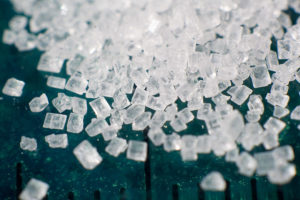Phytic acid is a substance found primarily in whole grains, beans, and nuts that reduces the absorption of specific minerals from food. I previously wrote that minimizing phytic acid may be an important part of a healthy diet, but new evidence—and a reexamination of old evidence—has convinced me that it probably isn’t as important as I initially thought. At least in the context of a diverse, omnivorous diet.
Two things I’ve changed my mind about, part I: Butter
I like to believe I can update my beliefs when presented with new evidence or a better interpretation of the same body of evidence, rather than clinging to my old beliefs. In the next two posts, I’ll discuss two examples where that has happened. Years ago, I argued that butter may make positive contributions to health. My thinking has gradually evolved since then, and I now think less refined forms of dairy are preferable to butter. Here’s why.
Announcing the Bland Food Cookbook
Old April Fools post!
My book The Hungry Brain explains why we overeat and offers strategies to combat it, but it doesn’t go into great detail on how to apply this knowledge. One of the most potent drivers of overeating is food reward, or the seductiveness of food that drives us to eat things like cookies, chocolate, fancy coffee drinks, bacon, and chips. Eating a lower-reward diet helps reduce calorie intake and body fatness, but how do we put that into practice? By popular demand, the answer is here: The Bland Food Cookbook.
Meta-analysis: Impact of carbohydrate vs. fat calories on energy expenditure and body fatness
Sometimes, a meta-analysis (quantitative study of studies) is just what the doctor ordered to inoculate us against the shortcomings of our own cognition. When a topic has been studied extensively and it has produced many studies of varying quality, this lends itself to incorrect conclusions because we can find studies to support almost any belief. This is problematic because we naturally tend to gravitate toward evidence that reinforces pre-existing beliefs, and away from evidence that challenges beliefs. Called confirmation bias, this phenomenon afflicts all of us and has to be actively managed if we want to arrive at reliable knowledge. Systematically examining a body of evidence and integrating it mathematically is a useful tool for combating this bias. A new meta-analysis examines the effect of carbohydrate vs. fat calories on energy expenditure and body fatness, giving us the most objective view of this question to date.
The impact of weight loss on the drive to eat
Weight loss engages a “starvation response” that acts to regain the lost weight, and this is a key reason why weight loss is difficult and often temporary. This starvation response includes an increase in the drive to eat and a decrease in calorie expenditure. Using a clever study design, Kevin Hall and colleagues recently quantified the contribution of eating drive to this starvation response. The results suggest that increased eating drive is the primary way in which the starvation response opposes weight loss.
Bad sugar or bad journalism? An expert review of “The Case Against Sugar”.

I’ve been asked by a number of people to review Gary Taubes’s new book, The Case Against Sugar. I reluctantly agreed that it would probably be a good idea for me to do so. In this post, I’ll provide something that is not available anywhere else (to my knowledge): a review of the book from the perspective of a former researcher who is an expert in some of the topics it discusses. [update 7/22/17: there is now a second detailed expert review of the book available here]
The Case Against Sugar is a journey through sugar history and science that argues the point that sugar is the principal cause of obesity, diabetes, coronary heart disease, and many other common noncommunicable diseases. This differs from the prevailing view in the research and public health communities that obesity and noncommunicable disease are multi-factorial, with refined sugar playing a role among other things like excess calorie intake, physical inactivity, cigarette smoking, alcohol and illegal drug use, and various other diet and lifestyle factors. I side with the latter view. In case anyone is wondering, I’ve never had any contact with the sugar industry and I have no other relevant conflicts of interest.
I’ll break the review into two parts, the first covering the historical aspects of the book, and the second covering its scientific aspects.